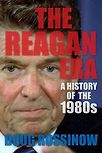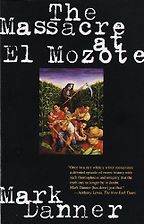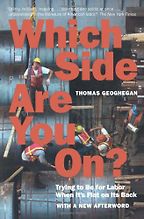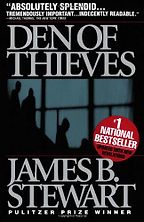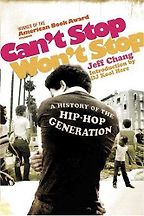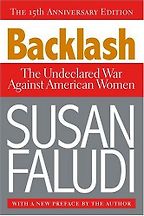Why do you think Ronald Reagan occupies such a warm place in so many American hearts?
There are a number of reasons. One is that the Cold War ended, or began to end, in the later years of his presidency and he’s closely associated with that. I find this when I teach students about Ronald Reagan and the 1980s. They quite readily say they know next to nothing about Reagan — or literally nothing — except that they believe he played an important role in ending the Cold War on America’s terms. That rescued his presidency from ending in what otherwise might have been pretty serious disrepute. On most other counts, his policies were quite harshly criticized by the end of his presidency. That saved his personal popularity and is the specific event that has elevated his position in the eyes of many Americans.
“On most other counts, his policies were quite harshly criticized by the end of his presidency.”
At a deeper level, Reagan has become—and I don’t think this just happened naturally, I think this is something that was constructed by political conservatives in the United States — a symbol of national strength and unqualified patriotism. And to be associated with such values, which to many Americans seem to transcend political partisanship, has placed Reagan in a kind of pantheon in the popular mind. This is quite aside from the facts of the 1980s and from reality, because, as most Americans will probably tell you, they know next to nothing about what he did politically.
And are these reasons for liking him in retrospect fair? Did he win the Cold War? Was he a symbol of national strength?
He certainly did symbolize a kind of flag-waving, lusty, American pride. I mean lusty not in the literal sense, but in terms of the vigor of his expression of patriotism. This was very important in the conservative movement in the 1980s, because it came on the heels of the 1970s and the Vietnam War, a period when many Americans came to doubt that their country was a force for unmitigated good in the world.
It was the conscious conservative intention to repulse any qualifications and to assert an unqualified belief that American might was a force for good. That is something that has a very powerful and abiding appeal to Americans and it is fair for Reagan to be revered on that count. He truly did advance the idea that US might was plain and simple a force for good. I think that is a somewhat childish view of things. To a historian, the popular mind of the 1970s, with its ambivalence about America’s role, seems somewhat more realistic. But Reagan did express the simplistic pride in American power that Americans continue to yearn for.
In terms of the Cold War’s ending with an American victory, I think that Reagan deserves some credit, but not that much. It was Mikhail Gorbachev who led the way in the disarmament process. Reagan was willing to accept surrender from Gorbachev, and he did have to change his mind in order to do so. I think on a personal, biographical level, he does deserve credit for a willingness to believe that Gorbachev was for real. Most movement conservatives in the United States in the late 1980s insisted that Gorbachev was not, that his proposals for disarmament where a ruse, cloaking some devious and obscure plot for renewed Soviet aggression around the world. And when Reagan decided that Gorbachev was sincere in his disarmament proposals, many conservative activists in the United States denounced him for selling out the cause and for being willing to make a deal.
Of course, the deals that Reagan started to make with Gorbachev and that George HW Bush then followed up were very favorable to the United States. If you do a thought experiment — imagining some other American president in office in the late 1980s — it’s impossible to imagine anyone not taking the deals, because they were so good from the US point of view.
You mention at the beginning of your book, The Reagan Era, that you voted for Reagan, but from the way you then go on to write about him as a historian, I feel that you probably wouldn’t vote for him again, is that right?
How old would he be now? About 120?
When writing contemporary history there’s a real challenge intellectually to be analytical and see things in the historical perspective we would use with a more remote period, and to rise above the partisanship that animated the time you’re writing about. I thought I should come clean, at the beginning of the book, about my own relationship to the topic, although I didn’t go on about it.
I think one of the special challenges of writing about Reagan in the 1980s is there’s a paradox. On the one hand, you have to try to rise above partisanship, which I try to do. The account is quite critical but I consciously tried to avoid making it a partisan account. It’s not a brief for the Democratic Party. At the same time — and you see this, to some degree, with the recent book Rick Perlstein wrote in his tetralogy about conservative politics — when you talk about Reagan, partisanship kicks in in people’s reactions to what you write. There’s an inclination to avoid criticism because it will be seen as partisan, whether it is or is not. So even though it’s important to transcend partisanship, it’s also important to be willing to make judgements.
“Even though it’s important to transcend partisanship, it’s also important to be willing to make judgements.”
When writing about Andrew Jackson or Ulysses Grant or any other leader in the more remote past, historians easily make judgements. They will say whether a leader did a good job or a bad job, was successful or unsuccessful. So to try to have a cool, analytical and critical perspective while, at the same time, avoiding easy partisan cant, is a real challenge. It will be up to others to decide whether I’ve succeeded or not. But, yes: clearly I’ve come to a very critical perspective on Reagan and the broader phenomenon of Reaganism.
History is a subject I enjoy, I’ve rarely read very recent history. Reading your book now — I’m 44 — I’m reading about things that I remember very vividly, as history, I’m finding I can’t put the book down. I keep wanting to read more, because with each chapter I’m thinking, “Oh now I understand what all that was about!” It’s a really nice experience.
I’ve never written a book like this before and I may never write a book like this again. I had a very clear vision of what I wanted the book to be early on, of the format, the content, and the way in which I wanted to try to produce a narrative that could be useful in just the way you described. When you’re writing about the very recent past, there’s not going to be a very well developed historical scholarship, and there isn’t on this topic, though presumably it will grow.
I thought it was important to try to establish a basic narrative that could make sense of what I thought were the most important events in political history and some in social and economic history as well. But I’m 48 and to write about things that you remember is a real challenge…
Did you find things were different from how you remembered them?
Some things. About Reagan individually, I was surprised at how coherent his thoughts and words often were. He actually often spoke in complete sentences. This was a function of his generational identity. He was born in 1911, and someone educated at that time was able to assemble coherent thoughts and to speak in clear declarative sentences in a way that is not as common for today’s leaders. I was also surprised to see how mentally involved he was, because we have an image now — because of his later Alzheimer’s disease — that he was doddering and perhaps senile, even as president. This is something that his liberal enemies said, from the beginning of his presidency, but it really was not true.
Particularly with the Iran-Contra scandal, the idea that he was doddering became very useful to him, and helped save him from impeachment. But he was far more involved in that policy disaster than many people today even realize and was quite involved, at the highest levels, with policy making in his presidency in general. So there are some surprises about Reagan, specifically.
More broadly, one issue that hasn’t been discussed much was the very severe tension in the conservative movement between the cultural traditionalists — who believed in so-called traditional values and Christian morality — and the cultural hedonists, who were a very strong presence in the 1980s. This hedonism was very closely linked to the neo-liberal economic doctrines of the time, but is not much remembered today. I wanted to bring that home to people, that, if anything, the hedonists had the upper hand in the conservative movement in the 1980s and it was only after that the cultural traditionalists took the stronger position.
We’d better get going with your books. The first one you’ve chosen is by Mark Danner, about The Massacre at El Mozote. How does this book fit into the narrative?
There’s not a really well developed historical scholarship on the period, so I wanted to recommend books that give a vivid sense of the era. When I teach, sometimes the first book I have students read is The Massacre at El Mozote, which is very eye-opening to young people. They’re not aware of the tremendous political conflict that wracked the United States during the 1980s over policy towards Central America and the Caribbean Basin. Mark Danner’s book is about massacres that were carried out in late 1981 in El Salvador.
The Atlacatl battalion was a Salvadoran army battalion that had been trained by US Army personnel and so was considered a source of great pride by the United States. They perpetrated massacres of probably 500-800 people in and around the village of El Mozote, during a period of terrible civil war and bloody counter-insurgency in El Salvador. It was a counter-insurgency that was funded, fueled, and very, very strongly supported by the United States and particularly by the Reagan administration. It was, in the end, a frightful policy and a very bloody policy.
It was controversial in the United States, but one of the things you realize by the end of Danner’s book is that, despite all of these horrid revelations — which came to light in the United States in 1982 — it really did not affect US policy. There were investigations, there was some gnashing of teeth and rending of cloth in public but US policy continued as it was. It was a very dogged commitment of Reagan’s personally, to wage this counter-insurgency warfare in Central America and to reclaim the Caribbean Sea as an American Lake, to use a term that was once popular. Only with the ending of the Cold War did members of the US Congress finally prove willing to pull the plug on funding for the counterinsurgency in El Salvador. And that didn’t happen until George HW Bush had become president.
Danner’s book, with its highly clinical and very specific, very factual, presentation, brings home the horror of this episode very vividly.
One thing that comes up in your own book is that Reagan was quite racist. This book you’re recommending is about the horrible things going on with the support of the US in Central America. What I wanted to ask you is this: If we’re now approaching this whole period as history, do we excuse these things because of it being a different time? As you mentioned, Reagan was born in 1911, and the older generation are generally more racist than we are. Equally with the atrocities in El Salvador, it was the period of the Cold War — does that make these things seem more justified in a way that would be completely unacceptable now?
I’m not sure they would be completely unacceptable to people now. I’m not sure that much has changed. The question of race is a very important one in the phenomenon of Reaganism, it’s right there on the surface of the Reagan appeal and the conservative movement in the 1980s. But I would treat it separately from the issue of Central American policy. I do think that for Reagan and his supporters the lives lost in Central America were not very real to them. I don’t know if that was strictly speaking a question of race, or not. It was the atmosphere of the Cold War and that’s the framework that Danner thinks is most important in understanding US policy.
Reagan was the presidential candidate who began the tradition of Republican presidential aspirants paying respectful pilgrimage to Bob Jones University, which was a segregationist university in South Carolina. Reagan had been against every civil rights law passed by Congress and signed by presidents from the 1960s onward. He had a very clear position, which is that he didn’t think the United States government should play a major role in civil rights at the federal level. He was just not that sympathetic to civil rights advocates and people of color. They were not an important part of his political coalition. In 1984, Reagan was reelected in a landslide. 85% of Americans who voted in that election were white. Reagan got two-thirds of their votes and you do the math. That was Reagan’s political base.
Get the weekly Five Books newsletter
It’s important to understand that Reagan’s position was the movement conservative position in America from the 1960s through to the 1980s — that the civil rights movement was not an admirable movement and that the major civil rights laws of the era were not salutary and should be opposed. Reagan did accept the major laws after they were passed. He did not try to undo them. In fact, in 1982, he signed a 25-year extension of the Voting Rights Act of 1965, a law that he had opposed when it was first passed. His willingness to sign the extension was, I think, evidence of his political realism.
“Reagan had been against every civil rights law passed by Congress and signed by presidents from the 1960s onward.”
Reagan’s lack of sympathy with civil rights wasn’t simply a matter of his generation, but rather his deep involvement in the conservative movement. And I think a lot of people who have written about the conservative movement in that period have really soft-pedalled the question of race. It was central in the crystallization of their movement and central to their agenda, to resist the push for civil rights in the name of liberty. It was part of their general individualist social ethics and the neo-liberal view that the state should be a weak state. Reagan was not an advocate of white supremacy but he sided with segregationist forces throughout his political career, from the 1960s onward. It’s that simple.
Equally with the massacre in El Salvador, you don’t think that’s excused by the circumstances of the Cold War?
No. There were enormous numbers of people who opposed it in this country and elsewhere. I think it would be a mistake for us to say that either on the question of civil rights and race, or on the question of US foreign policy during the Cold War that it would have been somehow impossible or difficult for people of that time or generation to have taken different views, because enormous numbers of people did take different views. These were matters of great division and controversy.
Your next choice is a book about organized labor, Which Side Are you On? Trying to be for Labor When it’s Flat on its Back…
Of all these books, this one might be the best reading experience. It’s a rollicking ride, a sometimes profane journey through the underworld of organized labor in the 1980s. Not that the author, Geoghegan, is profane, but he reproduces profanities uttered by others. It’s a lament for a dying subculture.
In the 1980s, organized labor was ‘the real counterculture’; it was almost a kind of ‘outlaw culture’, as Geoghegan calls it. Geoghegan writes, at the beginning of his book, about the overwhelming presence of individualism as a social ideal during the Reagan era — expressed in slogans like ‘Whoever dies with the most toys wins.’ The idea that these paunchy, middle-aged men would stand around singing Solidarity Forever appeared absurd to many Americans at the time.
Organized labor was basically caught in a death spiral, but, even so, it was still alive as a kind of underground culture. Who would think these middle-aged working class men would be the real counter-culture rather than hip young people? But Geoghegan has got a strong case to make that they were. It’s a movement that was raging against the dying of the light. It’s important to remember the losers, just in the way EP Thompson wrote about the importance of resisting ‘the enormous condescension of posterity’ in The Making of the English Working Class. And Geoghegan really is writing about the losers of the era, who saw their legacy and their dreams and hopes for security ground down. It’s a marvellous read and to someone like me, who didn’t grow up knowing anything about organized labor, it was quite educational.
One of the reviews said it was comic.
Yes, there’s a great deal of humor in it, even through it’s a very wry, sorrowful kind of humor.
Let’s move on to your next choice, which is about the Wall Street insider trading scandals, Den of Thieves by James B Stewart.
There were several books written about Wall Street amid the insider trading scandals of the late 1980s, which started to break into the public view in late 1986. There were many different scandals erupting in different precincts of the conservative movement right around the same time: the savings and loan meltdown; the scandals involving evangelical preachers; the Iran-Contra scandal as well as the HIV-AIDS crisis, which was becoming a political crisis as well as a public health crisis.
All of these things were happening simultaneously, from 1986 to 1988. But the Wall Street scandals were the bombs going off, figuratively speaking, at the true heart of Reaganism. Wall Street was the citadel of the economic vision and ideals promulgated by movement conservatism in the 1980s. Wall Street titans and traders were celebrated and became cultural heroes in a way that hadn’t occurred since the 1920s. And suddenly some of them were taking a big, big fall.
“The Wall Street scandals were the bombs going off, figuratively speaking, at the true heart of Reaganism.”
Den of Thieves is a very vivid portrait of people who broke what rules there were in the process of transforming American finance and the American economy and making a lot of money by doing so. The book is somewhat marred by his tendency to moralize and to have white hats and black hats. It is easy to tell this story as a simple morality tale of greed and people getting their comeuppance. But some people did take a fall and the story is a fascinating one. Also, just to be reminded of who Michael Milken and Ivan Boesky were, and who Rudolph Giuliani was, when he first became a prominent public figure — very different from the Giuliani that people know today — really takes you back. It’s a good first draft of this history.
You mentioned your students before. When they think of the 1980s they must be familiar with the ‘greed is good’ mantra, aren’t they?
They’re probably too young. Students who are a bit older may have seen the movie Wall Street by Oliver Stone and remember the ‘greed is good’ speech the Michael Douglas character, Gordon Gekko, makes. Stone’s movie came out in the late 1980s amidst these scandals. It was produced very quickly.
The speech was clearly taken from Ivan Boesky’s commencement speech at Berkeley in 1985. It is not very far removed from things that were said very seriously: it’s only satire by a few small degrees.
I know you’re a historian rather than an economist, but personally, being leftwing, I was very anti- both Ronald Reagan and Margaret Thatcher at the time. But, in retrospect, I think maybe the economies they inherited did need to be shaken up in some way to allow growth. I think Maggie may have been right after all.
I made very brief comparisons in my book between Thatcherism and Reaganism. I had to leave out a far more extended comparison that I could have made, which would be a very interesting study in itself. In Britain, there was a sense of an enervated spirit in British capitalism, that the labour unions had a crippling hold on economic vitality and dynamism so it was important for Thatcher to break them as she did in the miners’ strike and other instances. The economic situation in the United States was somewhat different. I don’t think there was as strong a sense of economic crisis, although there was a crisis in economic policymaking in the 1970s caused by the phenomenon of stagflation. There are a couple of levels on which you could analyze this. One is a question of where economic growth is going to come from. Another is whether the structure of corporate organization was a dynamic one or not.
“The importance of self-interest as a force that would rejuvenate America was the object of true, gleeful celebration.”
In terms of macroeconomics, Reagan’s economic policies didn’t work the way they were advertised in some respects, while in some ways they did. The recession of the early 1980s was brought on intentionally to wring inflation out of the economy. That worked very well, and the US economy has been a low inflation economy ever since. I think there are other global forces that have helped to ensure that, but the high interest rates worked. They also did a lot of damage and cost a lot of jobs — and helped usher in the transformation of the American economy into one that is based more on finance and services and less on manufacturing employment.
The economic recovery that occurred after that was marketed and sold by conservatives in the United States as a supply side recovery spurred by Reagan’s tax cuts and renewed investor confidence. That’s really not true. The data indicate very clearly that it was actually a demand-side recovery, produced by huge deficit spending. So the irony of the Reagan recovery, as some people would call it, from late 1982 onwards, is that it was the last real Keynesian, demand-side economic recovery. Reagan was a crypto-Keynesian.
As for the structure of corporate America, economic and business historians do think that the disarticulation of large multi-divisional conglomerates in the 1980s was a healthy thing for corporate America. The multi-divisional conglomerates that had been formed in the 1960s and 1970s weren’t functioning very well as firms. While the mergers and leveraged buyouts of the 1980s became a kind of lightning rod for criticism they weren’t necessarily the companies where there were the biggest number of job losses. The biggest losses of good paying manufacturing jobs often occurred in companies that were not objects of leveraged buyouts.
So, I think that there is actually an interesting and unusually scholarly debate among business historians about how good or how bad the whole leveraged buyout phenomenon of the 1980s was, the merger-mania that then led to the break up of a lot of multi-divisional corporations.
Because one of the things you hint at in your book is that Reagan was a bit of a plutocrat — cutting taxes to help his rich friends…
I think Reagan believed that by helping the rich all of society would benefit. It wasn’t just a simple or narrowly conceived partisanship for the wealthy. He didn’t think he was helping the rich loot the government Treasury, but that all of society would ultimately benefit through what his critics called “trickle-down economics.”
He clearly thought that the way toward a good and prosperous society was to let the wealthy keep more of their wealth, to give them the incentive to create wealth. I also think he believed, at a moral level, that it was wrong, as he might have put it, to confiscate wealth through progressive taxation.
Your next book is a history of the hip-hop generation. How does this choice fit in?
This is a fun book too. One of the reviews of this book by Jeff Chang, Can’t Stop Won’t Stop, calls him the Howard Zinn of hip-hop. There’s some truth to that. The book covers a broader chronological period: it starts with the origins of rap music and hip-hop culture in the 1970s and goes through to the 1990s. But there’s a lot of fascinating material on the 1980s: the evolution of what we now call East Coast Rap, with Public Enemy and other groups, in the early 1980s and then the development of West Coast Gangsta rap in the late 1980s.
It’s another trip through the underside of Reagan’s America. I think it’s somewhat overwritten, but it’s still highly absorbing and informative. Actually, the history of rap music is one of the few areas of recent history that has become the object of some scholarly work. Chang’s book is not a work of academic scholarship, but I think it’s a better reading experience.
Does he have a main thesis he’s trying to get across?
It isn’t a thesis-driven book, except to argue that hip-hop culture — rap music specifically and hip-hop culture more generally — was the authentic cultural expression of young people of color in America at a time when they saw fairly bleak prospects for themselves. Of course one of the ironies of hip-hop culture is that it became, for a small number of artists and entrepreneurs, an avenue toward great wealth and social success.
The further irony is that rap music became, probably, the most lasting and influential cultural product of the 1980s. I don’t think anyone could have predicted that at the time.
Finally you’ve got a book by Susan Faludi, Backlash, which is about the 1980s as period of regression for women’s rights.
Faludi’s book is a classic piece of journalism. Again, it’s a first draft of history, published at the very beginning of the 1990s. It’s very clearly a feminist critique, quite a lengthy one, of the culture of the 1980s. There is just so much in it that is forgotten now, that it’s a trip back in time to read it.
For the portrait of Randall Terry and Operation Rescue, the militant anti-abortion group that he organized, alone, the book is worth reading. But there’s much else besides — from television shows to self-help gurus. It’s like a gallery of horribles, as Faludi presents it. But she is a very skilled writer. She was predicting or hoping to fuel a new feminist era in the 1990s and I don’t think that really happened, but her look backward at the 1980s is highly informative.
What’s the worst horrible in the gallery she presents?
I think the portrait of Randall Terry and Operation Rescue is fabulous. It also provides insight into the conservative movement at the time.
What was Operation Rescue?
Operation Rescue was a very militant anti-abortion group. A big issue for Christian conservatives in the 1980s and afterwards was to combat the moral scourge of abortion through legal means but also through direct action. Operation Rescue was probably the most militant of the direct action groups that arose in the 1980s. They descended upon reproductive health clinics where abortions were performed and tried to get in the face of women who were getting abortions, as they said, to persuade and love them, through Christian nurture, out of making a terrible choice. But most of the women felt they were being intimidated.
Randall Terry did things like carry around a jar with an aborted fetus. He was so militant that many other prominent anti-abortion groups didn’t want to have anything to do with him. Faludi goes into his biography and explains how he was raised by a group of feminist women. She portrays his turn towards this highly militant born-again Christianity and anti-abortion activism as an expression of male insecurity and a backlash against rising women’s power and independence. Whether you agree with that psychological portrait or not, it is quite an absorbing portrait. Faludi, as a journalist, wields a sharp knife as she dissects people rather mercilessly.
But you mention in your book that Reagan himself was comfortable with strong women. Wasn’t Nancy the reason he started going down the conservative route?
I think she was a factor. It’s interesting to note, though, that his first wife, Jane Wyman, when she filed divorce papers against him, cited his growing involvement with conservative politics and his preoccupation with the threat of Communism, both in the United States and abroad, as a major grievance and a reason she wanted to end the marriage. So his political preoccupations were there already, although Reagan didn’t become a conservative Republican until around the time he married his second wife, Nancy Davis Reagan. So she did play a role.
Reagan was comfortable with strong women. That may sound like a rationalization of his very conservative gender politics, but it’s not. Reagan did believe, as so many conservatives did in the 1970s and the 1980s, that the feminist movement was a bad thing. Reagan was personally opposed to abortion, although he had signed a law, when he was Governor of California, that expanded the range of legal abortions. He later said he regretted that, that it was a mistake and he took up a clear anti-abortion position. But as president he didn’t do much about it.
By the end of the 1980s, Christian conservatives were expressing a lot of unhappiness and even anger. They felt they hadn’t gotten much out of their support for Reagan and the Republican Party in the 1980s. Reagan was very clear that this was a question of priorities. He was against abortion, but he wasn’t going to make it his top priority. Economic policy and foreign policy were his main agenda items and other things were really on the backburner.
Looking at your book choices — on foreign policy, on financial scandals. Do you feel that some of these things are still with us, that we are still following the same track?
In some ways we still do live in their world, the world of the 1980s, in Reagan’s world. In some ways we don’t. The Cold War has passed and there’s a different global affairs environment. But there are broad patterns that you can see going back all the way to the Cold War.
In terms of the issues that are central to American life, they’ve changed somewhat. In the early 1980s people were very concerned about inflation — it was probably the most important issue in getting Reagan elected in 1980. It’s not really an issue for most people today. Today we’re concerned about economic inequality and wage stagnation, which were certainly present in the 1980s but weren’t as widely talked about. Today people are very worried about mass incarceration and its effects, and that was just beginning in the 1980s. Some of the issues that we deal with today are legacies of that time.
We have trouble getting beyond the partisan views that animated the 1980s, but it’s important to understand the way in which the choices that people made in the 1980s helped to produce some of the pressing issues that people face today. That’s true about developments in the Middle East and Central Asia, some of which were fuelled by superpower policy in the 1970s and 1980s. It’s true of economic inequality, wage stagnation and mass incarceration. These are all issues that are very much with us today, and can be traced back to policy choices that were made in the 1980s.
Interview by Sophie Roell, Editor
April 17, 2015. Updated: August 30, 2022
Five Books aims to keep its book recommendations and interviews up to date. If you are the interviewee and would like to update your choice of books (or even just what you say about them) please email us at [email protected]
Five Books interviews are expensive to produce. If you've enjoyed this interview, please support us by donating a small amount.

